As the blistering afternoon sun of Puducherry slowly set, a group of history enthusiasts gathered by Palais de Mahe, one of the town’s biggest boutique hotels, to walk through the old town and learn about its unique and interesting history.
Puducherry was once occupied by the French and hence, educating tourists about the history and heritage of the town has been of paramount importance for its residents and the Government.
The Pondicherry Heritage Festival (PHF) is one such initiative. For the last 10 years, citizens have come together to educate the locals and tourists about the importance of preserving the unique architecture and culture of the town.
At present, visitors who flock to Puducherry for the aesthetic cafés, beaches, and the colonial French architecture have started to take an interest in the town’s history, culture, traditions, and local cuisine.
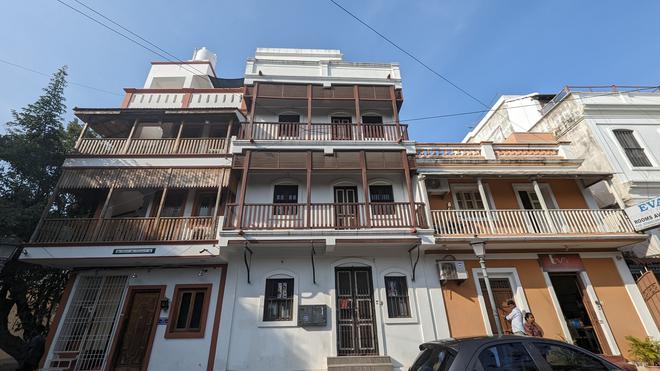
“You will see tour guides giving heritage walks at every corner over the weekends. We have trained a lot of people who now run their own private businesses,” said Ashok Panda, co-convener of INTACH’s Puducherry chapter.
Ashok, who has been involved in the restoration of colonial buildings in Puducherry for the last 20 years, conducted a heritage walk as a part of the Pondicherry Heritage Festival on March 1.
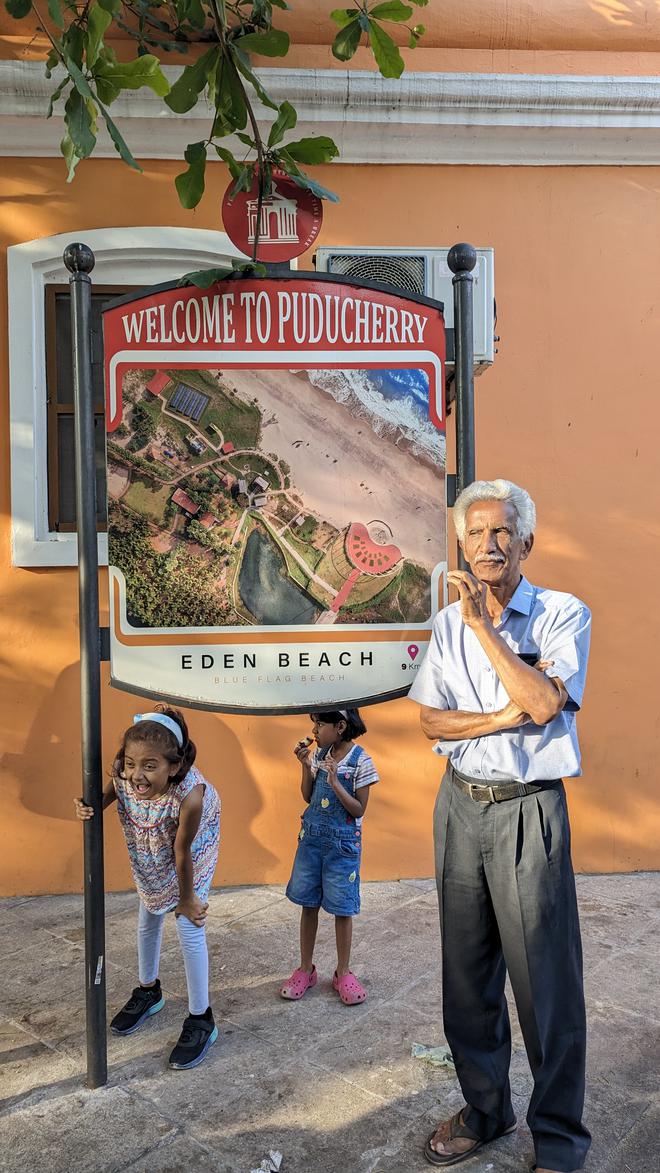
He started the walk with a brief history lesson about the French rule in India. “In the 18th Century there were wars between the French and the British, and the town was almost razed to the ground. What we see here today are mostly buildings built after the 1800s,” he said while walking down one of the streets.
“Pondicherry was built like a small town in France. The streets are narrow, there is a crossing every 100 metres and the place is for people to walk, and not for cars and big vehicles,” he said, making way for a queue of tourist vehicles to pass through.
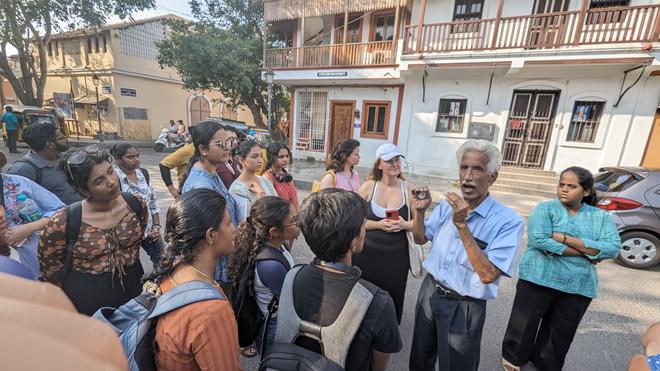
Since the coastal town does not have a natural deep sea port, the British did not find it to be of much strategic importance, especially since they had already occupied Madras. “The French, however, built a jetty into the sea, where the ships could be stationed and goods, loaded and unloaded.”
The French influence is still very visible in the old town in the form of street names and sign boards in French, English, and Tamil.
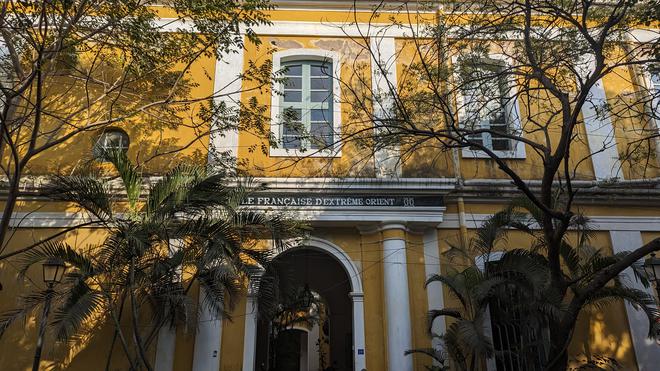
One of the oldest buildings that still stands tall, is a high ceiling, pillared white building with an open courtyard and intricate French detailing and windows. The building is currently used by the Catholic Church — the sisters of Cluny, which is a French catholic order, as their embroidery centre.
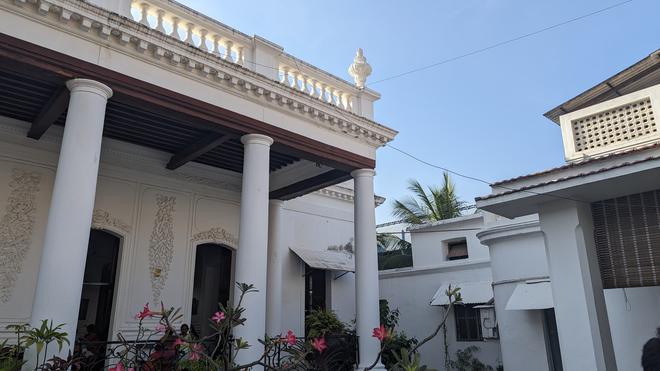
Till date, the old town of Puducherry is governed by rules of design for new buildings popping up to maintain the aesthetic value. “The rules clearly state that the front of any new building coming up, will need to have a beautiful front matching the French style of architecture. The buildings cannot be over two storeys high,” said Ashok, adding that since Puducherry’s climate is warm all year-round, the buildings tend to have higher ceilings and an open courtyard for cross-ventilation.
The walk concluded after a visit to the Notre Dame des Anges Church right on the promenade. The pink domed church with vaulted ceilings and beautiful stained-glass windows is the oldest building standing tall in the town, built in 1855.







